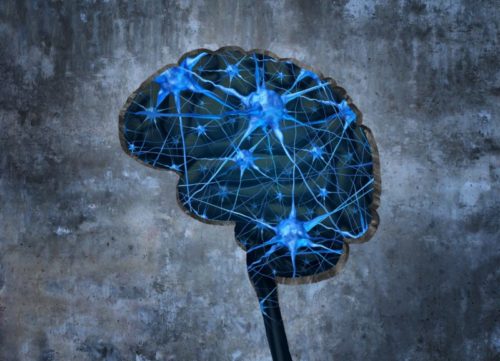
It’s clear as day after a good night’s rest that sleep has many benefits. Restful slumber helps us stay young, stay healthy, fight off infections, relieve pain, attain emotional balance, learn, and deal with adversity. Along with exercise, good nutrition, and healthy relationships, sleep is the key to living long and living well, and doing so mindfully.
The first-century Roman rhetorician Quintilian noted that “the interval of a single night will greatly increase the strength of the memory… Whatever the cause, things which could not be recalled on the spot are easily coordinated the next day, and time itself, which is generally accounted one of the causes of forgetfulness, actually serves to strengthen the memory.”
Modern sleep science keeps confirming the astuteness of Quintilian’s observation. Indeed, the advice to “sleep on it”—commonly dispensed to people facing difficult decisions and to students cramming for exams alike—turns out to be scientifically founded. Neuroscientists have found that sleep facilitates “both quantitative and qualitative changes of memory representations.” Researchers can study how people remember events and facts (qualitative) and observe how these memories change after sleep. Brain analysis shows changes in synaptic connections (quantitative) after sleep.
It is during sleep that our minds turn some short term memories into long-term ones. Researchers have found that sleep is critical in both the overnight consolidation of new memories and in preparing the brain for the acquisition of new memories. Sleep deprivation studies show that “lack of sleep before a task has been shown to compromise molecular processes involved in memory formation.” Sleep mediates learning and memory processing. Good sleep is needed before learning to fully prime the brain for the formation of new memories—and after learning, to sort the important information and retain it.
But, paradoxically perhaps, in order to remember some things, one has to forget some things. It makes sense when you think about it. Memory has to be selective: In order to preserve a remembrance, we have to choose to edit out a great deal of information that we had absorbed.
There’s a kind of relief, or a kind of a mercy, in forgetting. The Spanish Nobel Prize in Literature winner Juan Ramón Jiménez wrote a number of delightful poems and aphorisms on this topic. He called forgetting a virtue, necessary for detachment from the shadows of the past and the anxieties of the future. “Let us respect forgetting, the marvels of forgetting,” he urged, “which allow us to contemplate, isolated from all else, the uniqueness of the present.”
It now turns out, according to a couple of papers published in the journal Science in February of this year, that, indeed, sleep does not just help us remember, but it also helps us forget. A key function of sleep is to help us let go of some unnecessary memories. One study showed that nighttime pruning, or consolidation of contextual memories, is turned on by Homer1a proteins, which result from sleepiness. Another study demonstrated that without this pruning, the memories of lab mice remained fuzzy.
“You can forget in a smart way,” says one of the study authors Dr. Giulio Tononi, a biologist at the University of Wisconsin-Madison. Sleep helps us remember what is important, and clears away the clutter of information that need not be with us for long. We sleep to remember, and we sleep to forget. The magic of deep sleep gets rid of the red herrings of the Past in order to prepare our minds for the Future, and allows us to be awake in and to the Present.
Another way in which sleep functions as a superb mindfulness aid is through a mechanism found by researchers at University of California Berkeley’s Sleep and Neuroimaging Laboratory. They found that when robbed of sleep, the brain reverts back to more primitive patterns of activity. The study subjects who were kept awake were less likely to put emotionally-charged information in context. The reverse is also true. Doing the opposite–finding ways to get better sleep–allows people to resist the provocations of anxiety. “By restoring good quality sleep in people suffering from anxiety, we may be able to help ameliorate their excessive worry and disabling fearful expectations,” said Allison Harvey, one of the authors of the study published in the Journal of Neuroscience.
If you’re one of between 50 and 70 million American adults who chronically suffer from some sleep or wakefulness disorder, do not lose hope. Each of us can implement at least some of the methods that help attain restful slumber, and thereby improve our cognition, retention, mindfulness, and overall health. No expensive gadgets are needed! Just follow, to the extent you can, the 10 simple steps of sleep hygiene.
10 Steps of Sleep Hygiene
1.) Engage in physical activity during the day. Indirectly, exercise helps you sleep by decreasing arousal, anxiety, and depression. The more aerobic the activity, the farther away from bedtime it should be. Lifting weights in the evening is fine.
2.) Avoid caffeine in the afternoons and evenings.
3.) Consider developing a mindfulness meditation practice. The “mind-calming practice that focuses on breathing and awareness of the present moment” has been demonstrated to diminish fatigue, anxiety, depression, rewire brains, and even repair genes. It helps us get rest at night, too.
4.) Do not watch TV or use the computer an hour or two before bedtime. At the very least, eliminate the rousing blue light by using settings on your tablet or phone (such as Night Shift) or apps in order to feel less awake.
5.) Sleep on a comfortable mattress. If you suffer from back pain, be mindful of proper alignment and pressure points as you pick a mattress. The medical journal The Lancet recommends medium-firm mattresses for most people.
6.) Avoid using alcohol as a sleeping aid. Many people have associated sleep problems as a factor in the seed (or start) of their alcoholism. True, alcohol can help you get to sleep fast, but the arousals produced by alcohol, can result in nighttime sweating, headaches, waking after 3 a.m., and fitful dreaming.
7.) Fall asleep in a dark, quiet, and cool room. Cooler temperatures tell your body to fall asleep at night.
8.) Sometimes, sleep disturbances are caused by underlying illnesses and ailments or medications we take in order to take care of them. Ask your doctor whether those things are keeping you awake and discuss how to tackle them.
9.) Develop a sleep-promoting routine, relying on things that make you feel ready for bed—a relaxing bath, a lavender candle, reading, refraining from checking the news or social media after a certain hour, listening to a sleep meditation hypnosis app, etc.
10.) The last step is a placeholder: What has worked best for you so far in the quest to sleep soundly? Do that.
About this Contributor: Agnes Green is a researcher for the sleep science hub Tuck.com. She holds two masters degrees in the social sciences from the University of Chicago and Northwestern University. She sleeps most soundly after a kettlebell workout, on a medium-firm mattress, to the sound of a drizzle wafting in through a cracked window in Portland, Oregon.

Leave a reply
You must be logged in to post a comment.